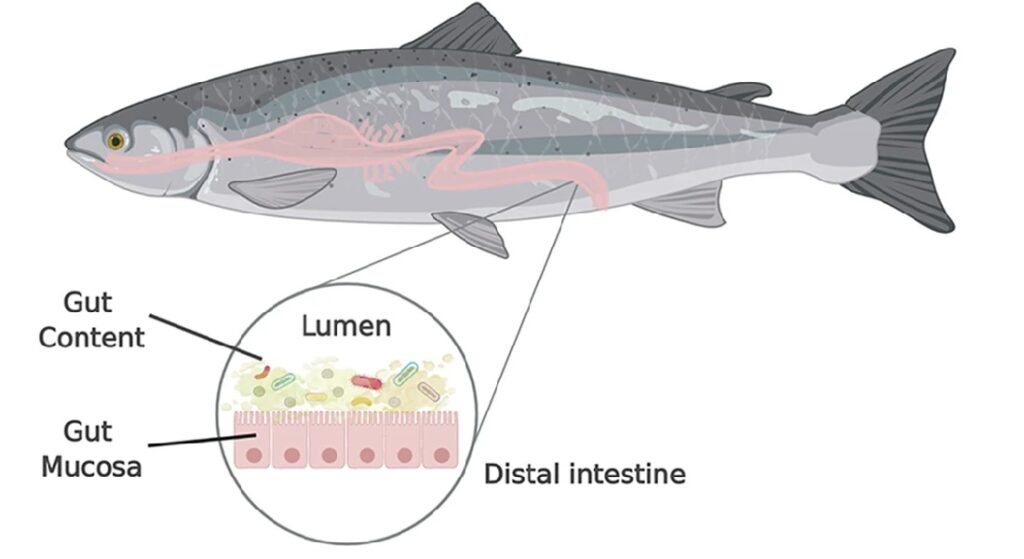CEH research team finds correlation between salmon health and gut microbiome
The correlation between salmon health and gut microbiome has the potential to increase our understanding of fish populations’ health and disease. This connection was recently explored in a new study done by researchers from the DNRF’s Center for Evolutionary Hologenomics at the University of Copenhagen and was published in the scientific journal Animal Microbiome.

A new study about salmon health can help boost efficiency and sustainability in aquaculture, which currently is our fastest growing food sector. Among some of the latest findings from the DNRF’s Center for Evolutionary Hologenomics at the University of Copenhagen is the correlation between salmon health and gut microbiome, a discovery that was recently published in the scientific journal Animal Microbiome.
“We cannot properly address the fish health issue without taking their microbiome into consideration. That’s because it’s the holobiont, the fish host plus its microbiome, as a unit that experiences the disease. If we don’t consider all the parts involved, we will never get the full picture,” said graduate student Davide Bozzi from CEH, who is first author on the study.
Disease prevention and management
In addition to Bozzi and three other co-authors from CEH, Associate Professor Morten Limborg was last author on the study. The study highlights some of the primary challenges of aquaculture such as farmed fish diseases and offers some potential new ways to prevent and manage them.
“There are two truly novel findings coming out of this study. First, we show that an external skin infection also affects the gut microbiome inside the fish, something that has been ignored previously. Second, our results document some striking correlations between specific bacteria and fish health, which can be used to more efficiently monitor animal health and earlier detection of diseases,” said Associate Professor Limborg.
Read more about the study at the University of Copenhagen here
